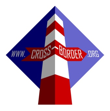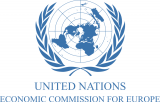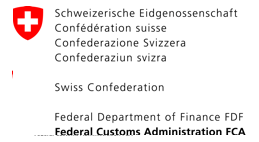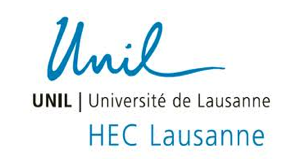| Key Players Regarding the Conference: |
World Customs Organization, WCO, Belgium
The World Customs Organization (WCO) is the only intergovernmental organisation exclusively focused on Customs matters. With its worldwide membership, the WCO is now recognised as the voice of the global Customs community. It is particularly noted for its work in areas covering the development of global standards, the simplification and harmonisation of Customs procedures, trade supply chain security, the facilitation of international trade, the enhancement of Customs enforcement and compliance activities, anti-counterfeiting and piracy initiatives, public-private partnerships, integrity promotion, and sustainable global Customs capacity building programmes. The WCO also maintains the international Harmonized System goods nomenclature, and administers the technical aspects of the WTO Agreements on Customs Valuation and Rules of Origin.
More information can be found at: http://www.wcoomd.org/home_about_us.htm
Cross-border Research Association, CBRA, Switzerland
Cross-border Research Association, CBRA, formally established in Lausanne, Switzerland in 2005, is an independent research entity focusing on advanced supply chain, supply chain security (SCS), e-customs, customs risk management and public-private interface research on a global scale. The CBRA research team carries out survey and case study work, cost-benefit analysis, various forms of modeling and theory development and other research tasks within the core domains. CBRA is collaborating closely with two Universities in Lausanne, i.e. HEC UNIL and EPFL, and with a handful of other top Universities on worldwide basis. CBRA works with both public sector and private sector actors, while carrying out this research, for the benefit of business and government practitioners, policy makers and academics alike. CBRA is an associate partner at TAPA EMEA; a member of WCO PICARD advisory group; and holds editorial board seats at the Journal of Transportation Security and the World Customs Journal. CBRA is also active in multiple FP7-projects, including LOGSEC, INTEGRITY, and FOCUS, as well the lead developer for CEN good SCS practice guidebook, and WCO customs risk management case studies.
More information can be found at: http://www.cross-border.org/
The United Nations Economic Commission for Europe, UNECE, Switzerland
UNECE is one of five regional commissions of the United Nations. The others are the Economic and Social Commission for Asia and the Pacific (ESCAP), the Economic Commission for Latin America and the Caribbean (ECLAC), the Economic Commission for Africa (ECA) and the Economic and Social Commission for Western Asia (ESCWA). Its major aim is to promote pan-European economic integration. To do so, UNECE brings together 56 countries located in the European Union, non-EU Western and Eastern Europe, South-East Europe and Commonwealth of Independent States (CIS) and North America. All these countries dialogue and cooperate under the aegis of the UNECE on economic and sectoral issues. To this end, it provides analysis, policy advice and assistance to governments, it gives focus to the United Nations global mandates in the economic field, in cooperation with other global players and key stakeholders, notably the business community. The UNECE also sets out norms, standards and conventions to facilitate international cooperation within and outside the region.
The area of expertise of the UNECE covers such sectors as: economic cooperation and integration, energy, environment, housing and land management, gender, population, statistics, timber, trade, and transport. UNECE has 56 member States. However, all interested UN member States may participate in its work. Over 70 international professional organizations and other non-governmental organizations take part in UNECE activities.
More information can be found at: http://www.unece.org/about/about.htm
State Secretariat for Economic Affairs, SECO,
Switzerland
SECO helps to ensure access to all markets for Swiss goods and services and investment. In that respect, SECO fosters the removal of multiple barriers to trade and seeks to develop customs policies based on trade facilitation principles, such as eGovernment-oriented solutions, both for the private and the public sectors.
In terms of foreign trade policy, SECO is active in the formulating of efficient, fair and transparent rules for the world economy. Switzerland's relations to the European Union are coordinated by the Integration Office, a joint office of the FDFA and the FDEA. SECO is also involved in efforts to reduce poverty in the form of economic development cooperation.
On the domestic front, SECO acts as an interface between business, social partners and government. It supports the regionally and structurally balanced development of the economy and ensures the protection of employees. Through its labor market policy, it contributes to the prevention and tackling of unemployment and consequently to upholding social peace. The Swiss Accreditation Service (SAS) affiliated to SECO is responsible for all accreditations in regulated and non-regulated fields.
More information can be found at: http://www.seco.admin.ch/index.html?lang=en
Cotecna Inspection, Switzerland
Cotecna Inspection is one of the world’s leading trade
inspection, analytical and certification companies. We have been a global
authority in the inspection industry for over 35 years. Cotecna Inspection combines
state-of-the-art technology and knowledge transfer with innovative, tailor-made
services to improve and secure trade environments around the world. A
family-run business, we pride ourselves on our professional excellence. We
offer a uniquely personal approach and take an uncompromising approach to our
customers’ requirements. Our clients are drawn from a diverse range of sectors
and industries.
More information can be found at: http://www.cotecna.ch/COM/EN/home.aspx
Swiss Federal Customs Administration
Swiss Federal Customs Administration is responsible for managing the customs border in such a way that it interferes as minimally as possible with the economy. The smooth cross-border movement of commercial goods is crucial for the attractiveness of Switzerland as a business location. FCA generate more than a third of the federal budget with their receipts.
More information can be found at: http://www.ezv.admin.ch/?lang=en
EPFL Chair MIR
The
Chair MIR studies the de- and re-regulation, as well as the governance and the
management of the network industries, i.e., postal services,
telecommunications, electricity, water distribution and sanitation, air
transport and railways with a special focus on the role the ICTs play in both
transforming and governing these industries. MIR has also extended its research
activities into areas of innovation and risk in these industries, as their
transformation makes them simultaneously more innovative and more vulnerable.MIR
teaches Minor/Master courses on Corporate Governance and Industry Analysis, as
well as PhD courses on De-/Re-Regulation of Network Industries and on
Qualitative Research Methods. MIR edits a quarterly Newsletter with the section
Economics of Infrastructures at TU Delft. In addition, MIR co-edits the Journal
of Competition and Regulation in Network Industries (CRNI) and holds an annual
conference associated with the journal. MIR runs Executive Masters programs on
e-Governance and Postal Management. It organizes an annual conference on Trends
and Innovation in the postal sector together with IPC.
More information can be found at: http://mir.epfl.ch/
HEC University of Lausanne
HEC
Lausanne serves its students, the corporate world and society as a whole.
More information can be found at: http://www.hec.unil.ch/hec/home
International Network of Customs Universities
The
International Network of Customs Universities (INCU) has been established to
provide the World Customs Organization (WCO) and other organizations with a
single point of contact with universities and research institutes that are
active in the field of customs research, education and training. The INCU is
also designed to provide a global resource for governments and the private
sector, and an educational source for students wishing to further their
knowledge in the field of customs management and administration, and
international trade and logistics management.
More information can be found at:









